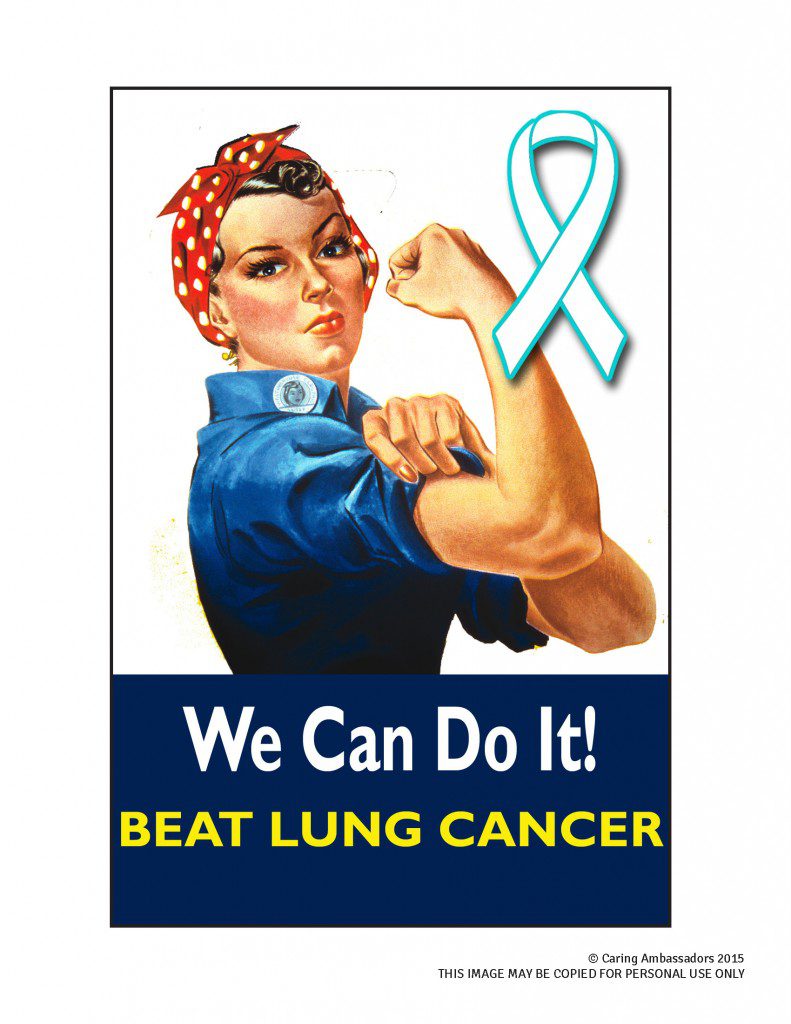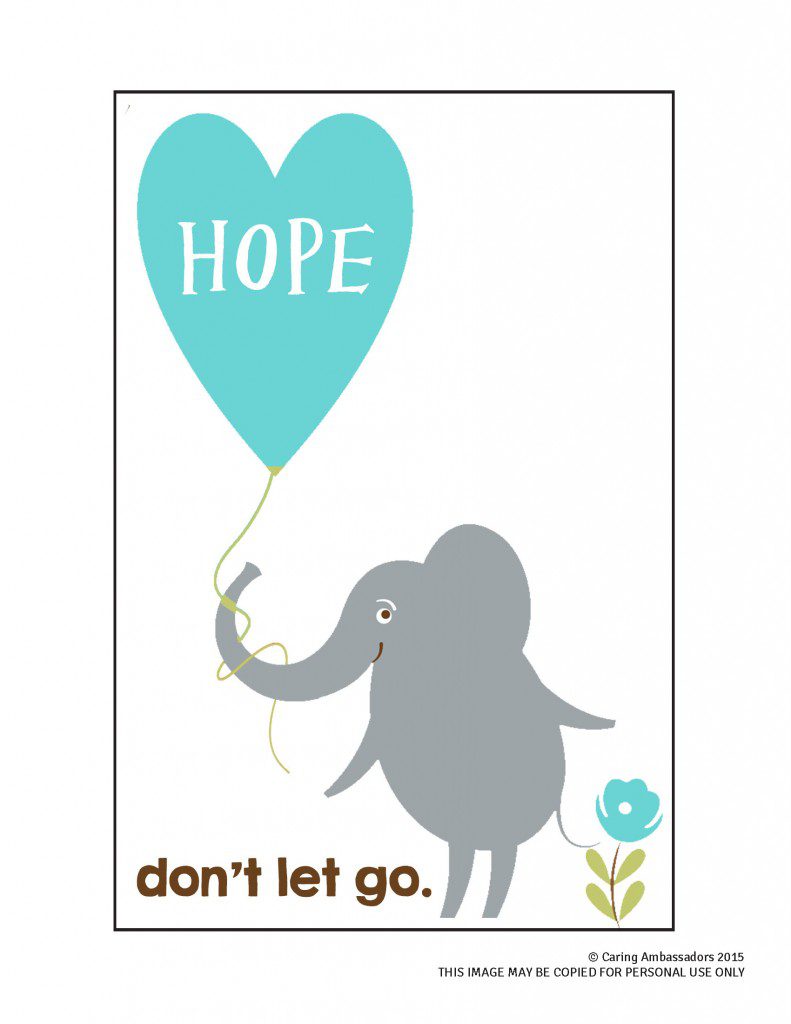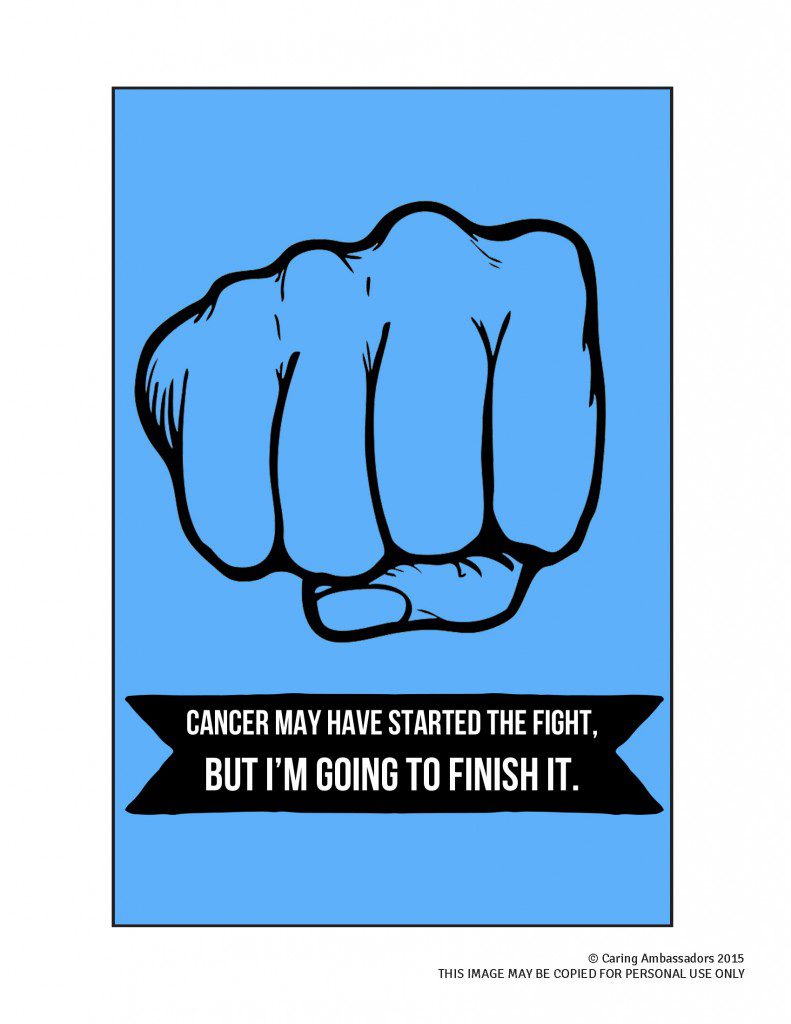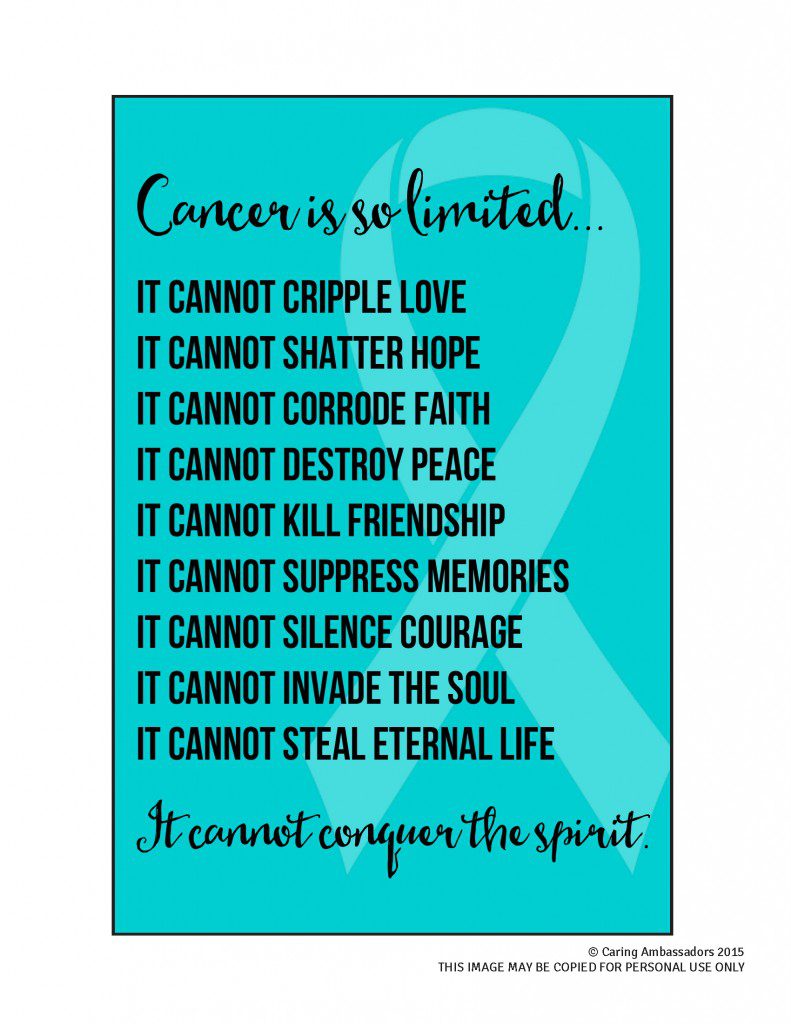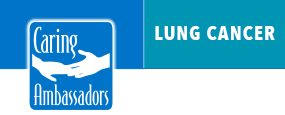Empower
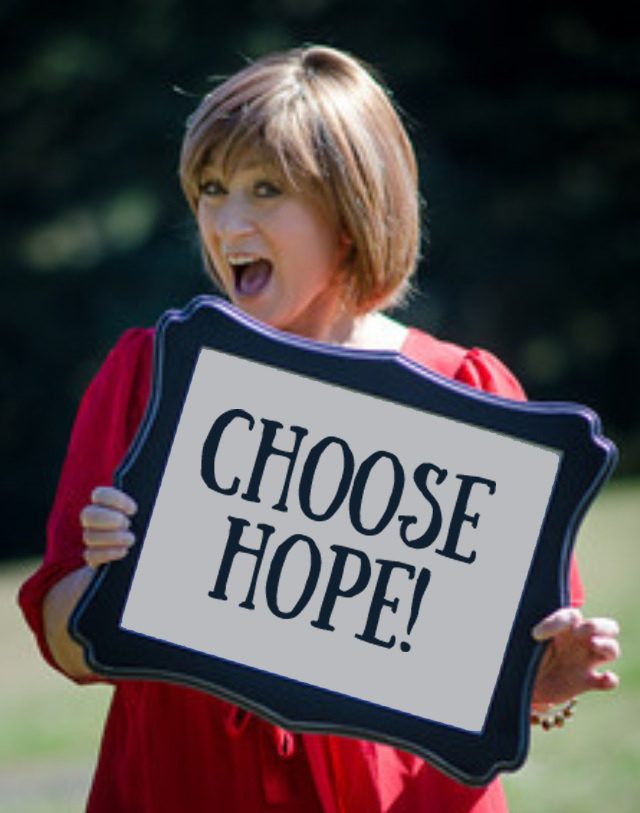
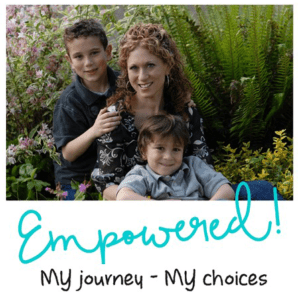
Written by a survivor determined to be a sur-THRIVE-er — Jessica Steinberg, M.S. in collaboration with
Caring Ambassadors
In April 2011, when I was 39 years old, I received an injury that left me needing both an attorney and a chest x-ray. One week later, I had signed divorce papers and found out I had lung cancer.
Send us your story! Some stories may be featured in our Story Corner. Please send us your inspiration and experiences. Feel free to include pictures and drawings.
Email your story to mystory@caringambassadors.org


I don’t know how anybody can hear “you have cancer” without feeling like it deserves a string of expletives. Let’s face it — no matter what stage of life you’re in, there is never a good time to hear those 3 words. So, let yourself have some time to deal with it. Cry, wail, scream, hop up and down, punch your pillow, blame yourself, sob, blame everybody else, rail against the universe, attempt to write your obituary, and/or whatever else you need to do.
At some point, though, you are going to have to face it.
It’s time to make some choices.
You have to do SOMETHING — even if it’s choosing to do nothing.
What drives YOUR decision? Assuming you made the choice to fight, WHO or WHAT are you fighting for? I’ve had other patients tell me all kinds of reasons they are motivated to fight — and everyone is different. Often it is about family — whether it’s a partner, children, grandchildren, and sometimes pets. I’ve heard from some that it’s the work they do that inspires them. Another person said they just ‘aren’t ready’ to be done living. They still want to go sky-diving, Rocky Mountain climbing, and 2.7 seconds on a bull named Fu Man Chu. (Okay, it was actually Tim McGraw that said that, but you never know… that might be some peoples’ reasons.)
So, if you’re with me… it’s time to put your ‘brave boots’ on. In the next few pages, I am going to share with you what got ME this far and how I became an “empowered” patient.
Just know, though, that it is up to you.
This is YOUR cancer journey
and YOU are in charge of what happens next.
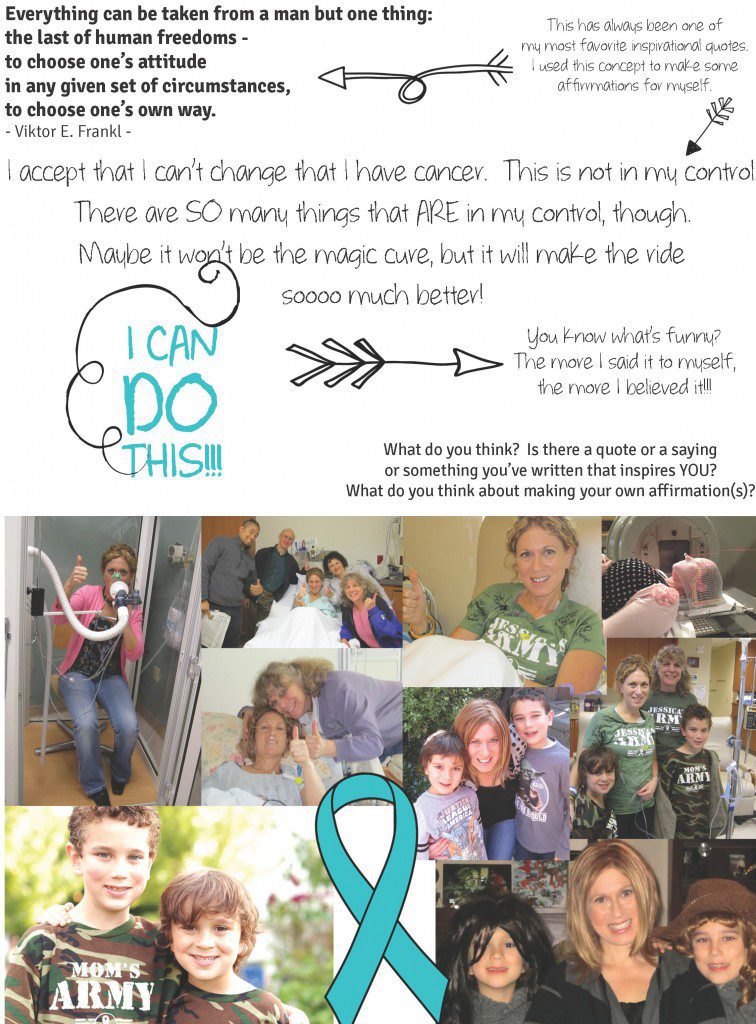

- I chose an oncologist who specializes in my type of cancer & got second opinions. If available, a doctor that has your cancer as a specialty ensures that your treatment is consistent with the newest research and treatment protocols.
- I established a working relationship of mutual trust, respect, and clear communication.Empowered patients recognize that their doctor is just a person, too — kindness counts on both sides. Empowered patients use their appointment time wisely. They arrive prepared with any questions or feedback and follow physician and prescription directions. They ask questions when they don’t understand something or need explanations.
- I became an active partner in my own care. Empowered patients insist on a biopsy or testing on their tumor for biomarkers that can determine treatment. They are invested in knowing their treatment options and are a partner in the decision-making process. They make sure they clearly understand the expected benefits and potential side effects of all options.
- I became my own best advocate. A positive working relationship with your oncologist does not change the fact they likely have patient loads in the hundreds, if not thousands. An empowered patient has just ONE — themselves. They don’t hesitate to ask for copies of their reports, get second opinions, or seek out further information.
- I realized that caregivers are heroes, too. Having supportive people along with you through cancer makes a difference that is indescribable. Let them in. Soak up their support and offers to help. Learn and practice saying “yes” and experience the power of love and community. Caregivers truly teach us that no one fights alone.
- I explored the world of palliative care. Palliative care focuses on providing patients with relief from the symptoms and stress of cancer. The goal is to improve quality of life for both the patient and the family. Empowered patients use these services to focus on feeling as well as possible.
- I realized the importance of good mental/emotional health. An empowered patient understands that the cancer journey includes challenging and emotional times. They recognize there are many strategies for maintaining good mental and emotional health and seek the best option for them.
- I sought balance. An empowered patient learns to fuel their body healthfully, while recognizing that participating fully in social activities and family celebration may have more health benefits than avoiding nightshade vegetables. An empowered patient stays as active as they are able, understands that treatment takes a toll on their body, and allows time for rest and relaxation. Sleep is healing!
- I realized that Kenny Rogers may have been on to something. Empowered patients know that you DO need to know when to hold ‘em, know when to fold ‘em, know when to walk away and know when to run. A cancer diagnosis has a funny way of changing one’s perspective on what really matters. I realized I couldn’t just learn and practice saying “yes” — sometimes I needed to say “no” too. I focused on saying “YES” to experiences or relationships that brought joy and happiness to my life, and “NO” to situations or relationships that had a negative impact or brought toxicity to my life.
- I maintained my sense of humor. Jest for the health of it! Seriously — there are studies that associate laughter with increased health benefits. Humor helps overcome and cope with the daily trials. When you find a way to laugh during stressful times, you automatically shift toward a frame of mind that invites an outlook of hope and a conviction that you can beat this @!*#. I committed to my boys early on that we would find some joy and humor in each day. There may have been several pajama drive-through trips for milkshakes and lots of movie nights, but I’d like to think we did it.
- I sought out and found a cancer community. Connecting with other survivors is like a power boost! Whether it be through a formal “mentor” program, an actual or virtual support group, attending/hosting awareness and advocacy events, blogging — there’s just something special about being with other survivors that “get you” like no one else can . Plus, it’s a great way to stay current with emerging research and treatment. Thanks to the internet and social media, you can be active in community-building while sitting on the couch. Be sure to let your caregiver know that there are groups for them, too!
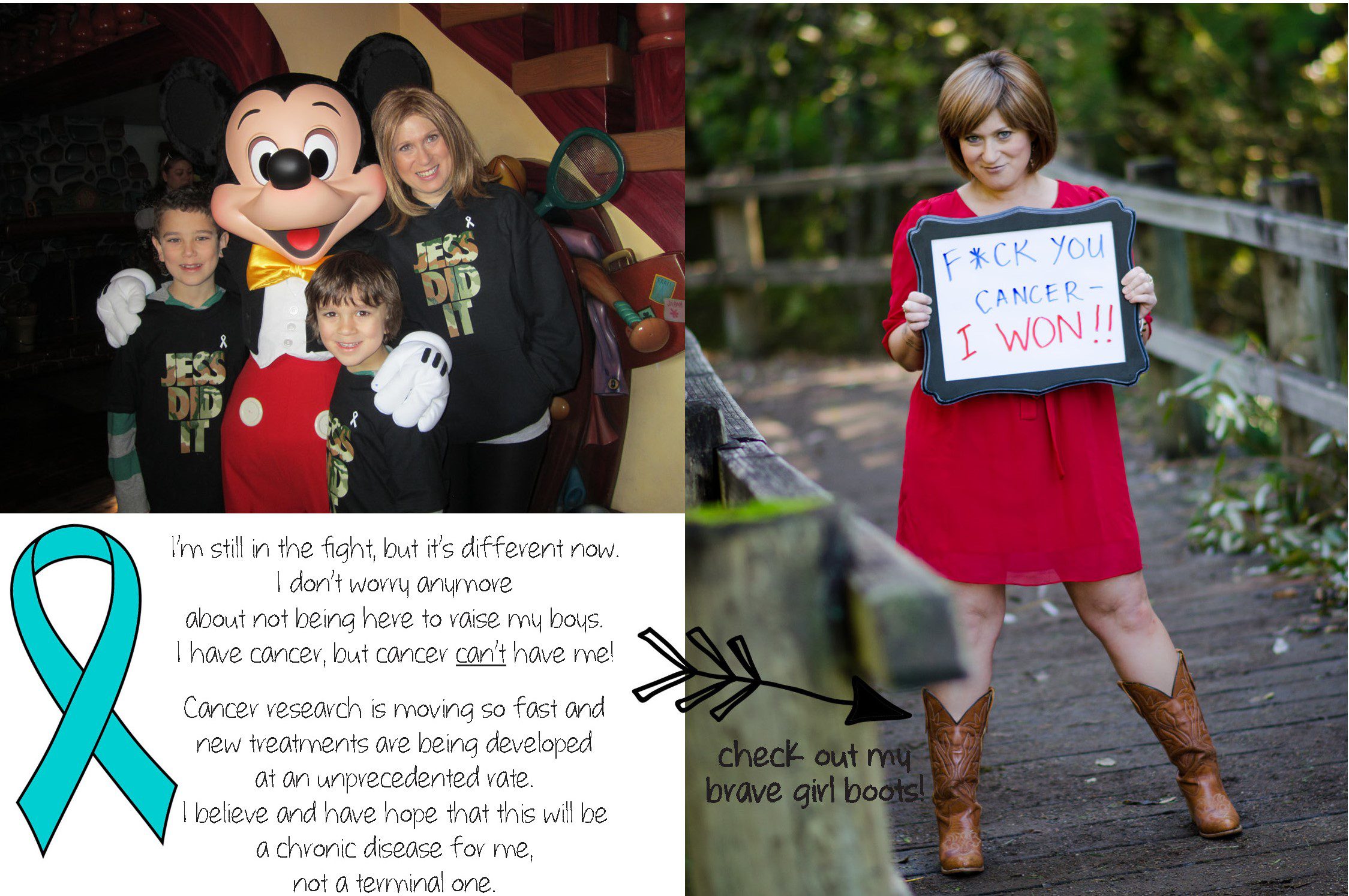
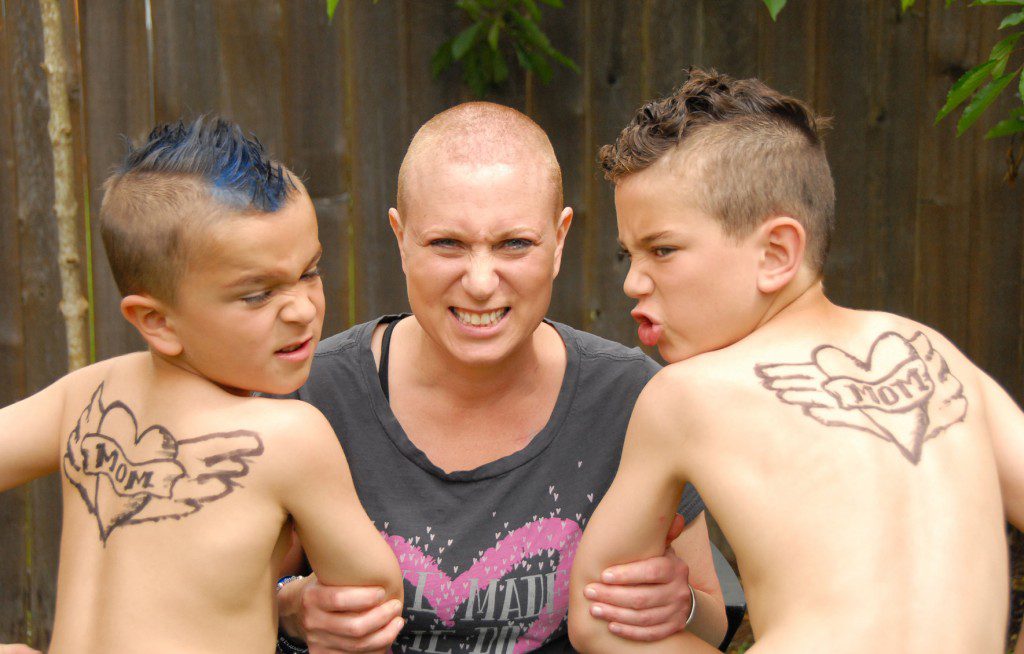
And let it be clear – hope is not denial.
It is educated optimism, and empowered patients know there has never been a time in the world of cancer treatment where having hope is so warranted.
Hope can inspire you to action, including being a stronger advocate for yourself and others.
Hope is contagious — when you have the spirit of hope guiding you through this journey, you may find that it affects the whole world you live in, your relationships with others, your dreams, and your goals and wishes for the future.
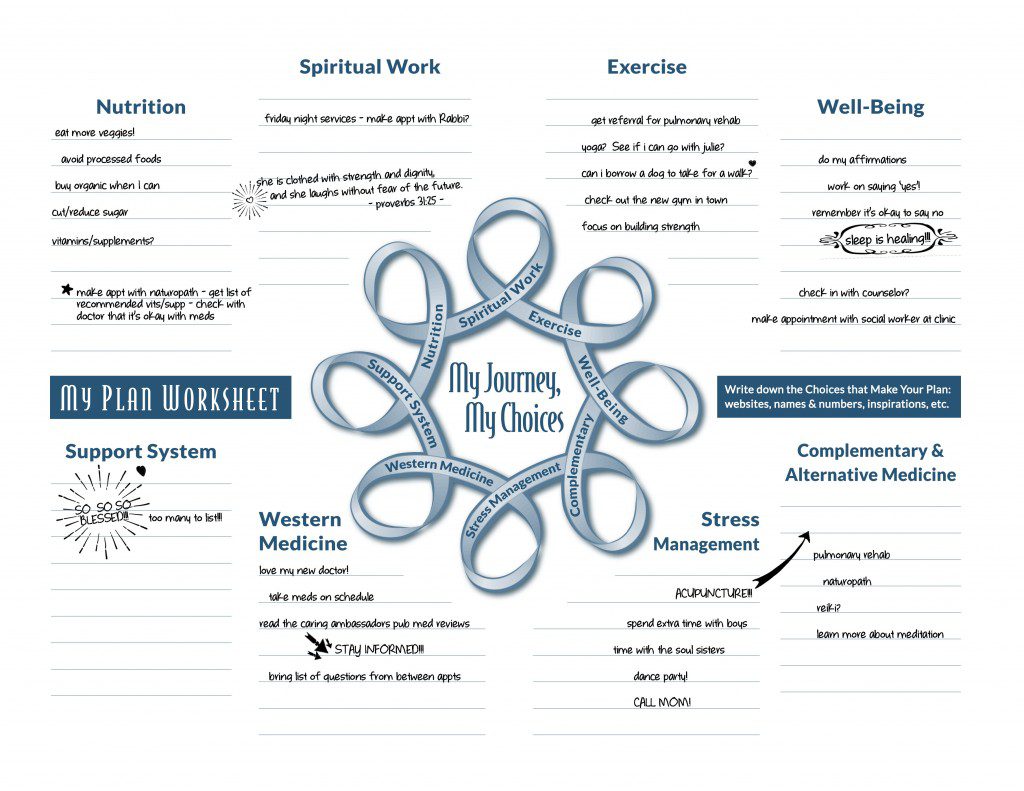
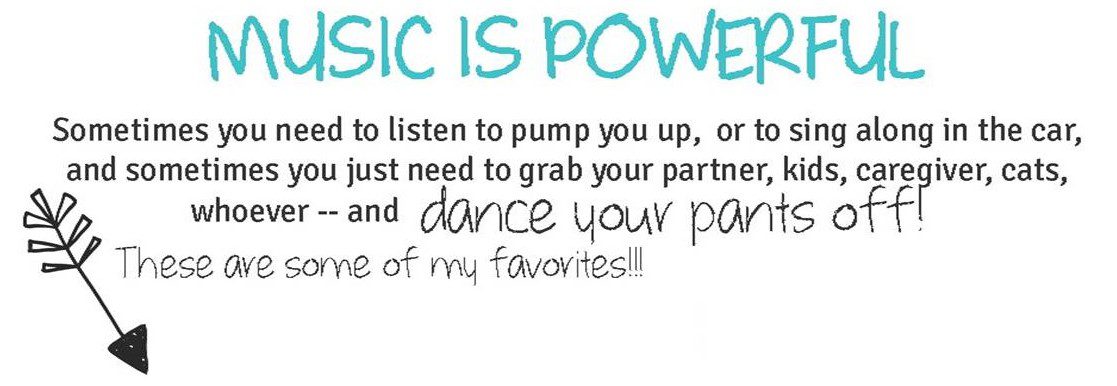
Ain’t No Mountain High Enough – Marvin Gaye & Tami Terrell
Best Day of My Life – American Authors
Dog Days are Over – Florence and the Machine
Down – Jay Sean
Eye of the Tiger – Survivor
Fight Song – Rachel Platten
F**k You (or clean version Forget You) – Cee Lo Green
Happy – Pharrell Williams
I Will Survive – Gloria Gaynor
Joy to the World – Three Dog Night
On Top of the World – Imagine Dragons
Roar – Katy Perry
Say Hey (I Love You) – Michael Franti & the Spearheads
Shake it Off – Taylor Swift
Stronger – Kelly Clarkson
The Fighter – Gym Class Heroes
The Gambler – Kenny Rogers
Tubthumpin’ – Chumbawamba
Whip it – Devo
You Ain’t Seen Nothing Yet – Bachmann Turner Overdrive

Research has shown that using positive self-talk reduces stress and depression, improves coping skills, and may even effect health outcomes. What *is* positive self-talk? It’s the voice in our head that narrates throughout our day. It’s like an inner sports announcer!
All the emotions of a cancer diagnosis can make it difficult to keep our self-talk positive. Consider the possibilities of writing yourself a note of affirmation and posting it somewhere where you’ll see it often, or your favorite inspiring quote on your mirror, or explore your creative side to create art for your home. The more you see or experience these words, the easier it is to keep your self-talk positive.
The next few pages are images that you are welcome to download and print to get you started. Ultimately, though, you should have something that is meaningful to YOU.
A note from the author:
Thank you for your consideration of this material and I hope that sharing what I have learned will be of some use to you. I would love to hear *your* stories of empowerment! Feel free to contact me through Caring Ambassadors at info@CaringAmbassadors.org
Remember: This is YOUR cancer journey and YOU are in charge of what happens next. YOU can do it!!!
Jessica Steinberg, M.S.
Caring Ambassadors 2015 ALL RIGHTS RESERVED
